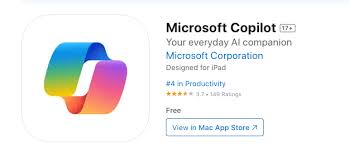
Introduction
In today’s rapidly evolving technological landscape, artificial intelligence (AI) continues to play a pivotal role in reshaping work environments across various industries. Copilot AI has emerged as a significant aspect of this transformation, designed to assist users in their workflows, enhance productivity, and foster creativity. As companies embrace digital transformation, understanding the impact of Copilot AI becomes increasingly relevant for professionals and organizations alike.
What is Copilot AI?
Copilot AI refers to intelligent software programs that act as virtual assistants, integrating into applications to facilitate user tasks. Prominent examples include GitHub Copilot, which provides coding suggestions to developers, and Microsoft’s various Copilot features designed for Office products. These tools leverage machine learning algorithms trained on vast amounts of data to generate suggestions that can improve efficiency and reduce the time spent on repetitive tasks.
Current Developments in Copilot AI
Recent advancements in Copilot AI reflect a growing recognition of its potential benefits. For instance, Microsoft announced a significant update to its Copilot functionality within office software, enabling users to generate content and automate workflows more effectively. GitHub Copilot has also evolved, now offering more contextual understanding of coding tasks, thus helping developers write better code faster.
In addition, many organizations have begun implementing Copilot AI across various sectors. For example, in the financial industry, Copilot systems are being used to help analysts gather and interpret data, thereby accelerating decision-making processes. Moreover, in marketing, companies are utilizing AI tools to analyze trends and automate content creation, freeing up human resources for strategic tasks.
Impact on Work Culture
The introduction of Copilot AI tools promotes a shift in workplace dynamics. By automating mundane tasks, these systems allow employees to focus on higher-level cognitive functions, such as problem-solving and creative thinking. The evolving workplace also sees a growing need for adaptability and continuous learning, as professionals must learn to effectively collaborate with AI systems.
Conclusion
As Copilot AI technologies continue to develop, they stand to significantly impact how we work. Organizations that embrace these tools can expect not only increased efficiency but also a potential competitive edge in their respective fields. However, it is crucial for companies to consider the ethical implications and ensure that human oversight remains integral to the decision-making process. Looking ahead, continuing advancements in Copilot AI promise to reshape work environments further, making this an exciting area for both organizations and technology enthusiasts to watch.



